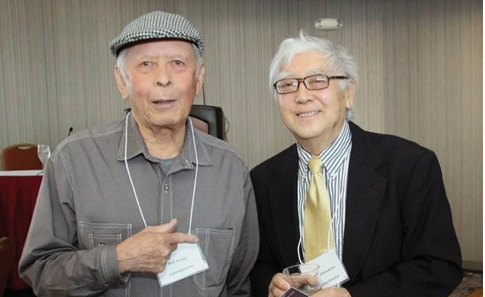by Toshiko Hasegawa, Executive Director of Washington State Commission on Asian Pacific American Affairs (Retrieved from CAPAA press release on March 26th)
It is with heavy hearts that we mourn the passing of Mich Matsudaira, who died on Sunday, March 24th. Mich was one of the original trailblazers who helped establish the Governor’s Asian American Advisory Council in 1972, which became the Commission in 1974. He served as the Commission’s first Executive Director from 1972-1978.
“Mich understood the power of collective action and advocacy, and helped institutionalize a seat at the Governor’s table for our diverse communities,” said CAPAA Executive Director Toshiko Hasegawa. “We honor his love for people and passion for service as we continue the work of CAPAA, which is now in its 45th year.”
“As a driving force in CAPAA’s early history, Mich Matsudaira laid a strong foundation for the future success of the Commission in advocating for and empowering the diverse AAPI communities of Washington,” said State Representative Sharon Tomiko Santos (37th LD), whose late husband Bob Santos helped establish the Commission and served with Mich in the 1970’s. “We owe Mich a tremendous debt of gratitude for his leadership, vision, and service.”
After his time at CAPAA, Mich served as President of the Seattle JACL in 1979, and spent up to 30 hours per week working with the chapter’s Social Concern Committee. He grew up in Seattle’s International District, where he opened Mich’s Mens’ Shop, and worked diligently to attract other young professionals and small businesses back to the area.
Martin “Mich” Matsudaira is survived by three children and many grandchildren. We will remember him as an ardent advocate for civil rights, social justice, and the betterment of diverse communities who call Washington home.
The Washington State Commission on Asian Pacific American Affairs (CAPAA) is a cabinet-level state agency whose mission is to improve the well-being of APA’s in Washington State by promoting equitable access to government services, resources, and policymakers. Its role is to identify and examine issues impacting APA’s and it advises the Governor, state legislature, and state agencies on issues relating to government services, programming, and changes to state law.







